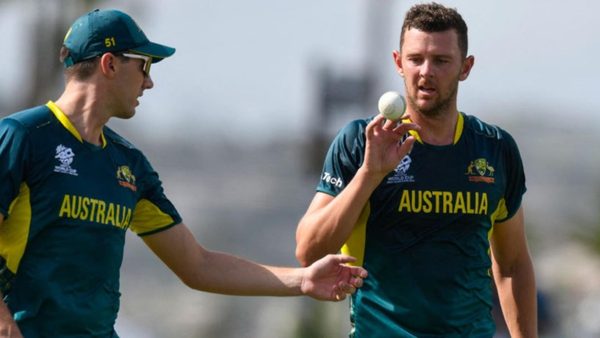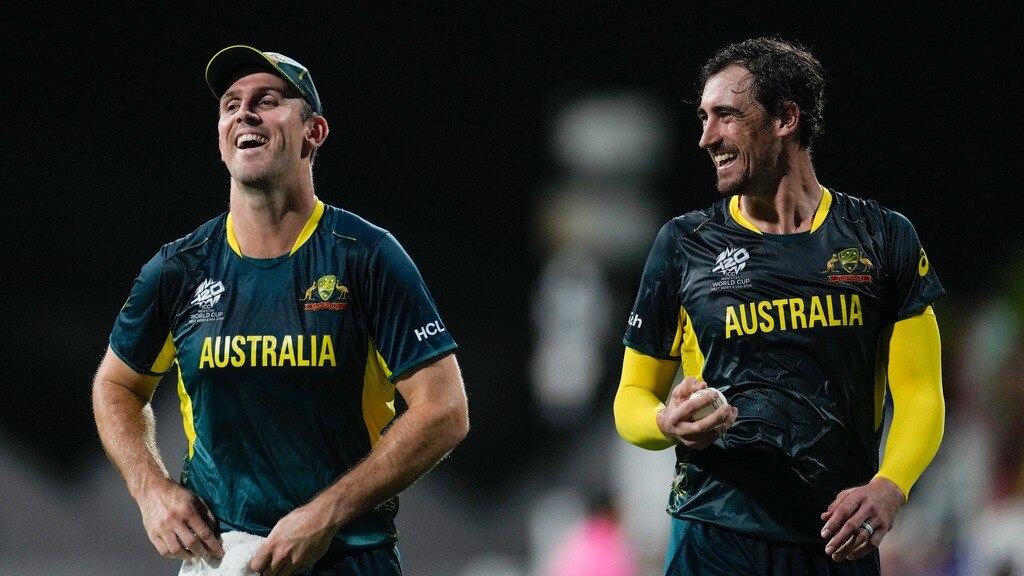The cricketing world is abuzz with speculation after Australia’s pacer, Josh Hazlewood, hinted that the team might not go all out against Scotland in their final group-stage match of the T20 World Cup 2024. If Australia intentionally manipulates the game, it could impact England’s chances of advancing to the Super 8 stage. This raises the question: can the International Cricket Council (ICC) penalize Australia for such actions?
Hazlewood’s Controversial Statement
Following Australia’s victory against Namibia, Hazlewood made a cheeky remark about the potential advantages of eliminating England early in the tournament. “We’ve had some real struggles against [England] in T20 cricket, so if we can get them out of the tournament that’s in our best interest as well as probably everyone else’s,” Hazlewood said during a press conference

Source : ZEE
This statement led to widespread speculation that Australia might not play at their full potential against Scotland, which could knock England out of the tournament if the latter fails to secure enough points in their remaining matches.
Source:- BBC news
ICC’s Stance on Match Manipulation
Under the ICC Code of Conduct, specifically Article 2.11, players and teams are prohibited from intentionally manipulating the outcome of a game for strategic gain. This article is designed to ensure the integrity of the sport, although it does not cover corrupt or fraudulent acts related to betting, which are addressed separately under the ICC’s Anti-Corruption Code.
If found guilty, the team captain can face significant sanctions, including fines ranging from 50-100% of their match fee and a possible ban for 1-2 matches. However, proving intentional underperformance is inherently challenging. Without explicit evidence, such as deliberate no-balls or wides, it’s difficult for the ICC to conclusively determine intent.
Implications for Australia
While Hazlewood’s comments were suggestive, they alone are not sufficient to warrant punitive action. For the ICC to take steps against Australia, there would need to be clear evidence that the team deliberately manipulated the game. This would likely involve monitoring the match for any suspicious activity that could indicate intentional poor performance.
The current ICC Code of Conduct holds the captain primarily responsible for any such conduct. Thus, Australian captain Pat Cummins could face disciplinary actions if found guilty, though the rest of the team would likely remain unaffected.
Historical Context and Precedents
There have been instances in the past where teams were accused of manipulating outcomes, but proving such allegations has always been problematic. The ICC has stringent procedures to handle these situations, yet the inherent difficulty in proving intent often results in few cases moving forward.
Conclusion
As the cricketing world watches, Australia faces the dual challenge of maintaining their competitive integrity while navigating the potential fallout from Hazlewood’s comments. The ICC will undoubtedly keep a close eye on their match against Scotland, ready to act if any concrete evidence of manipulation surfaces. For now, the onus remains on Australia to play fairly and uphold the spirit of the game, ensuring the T20 World Cup remains a showcase of genuine sportsmanship and competitive cricket.
Share your views in the comments

